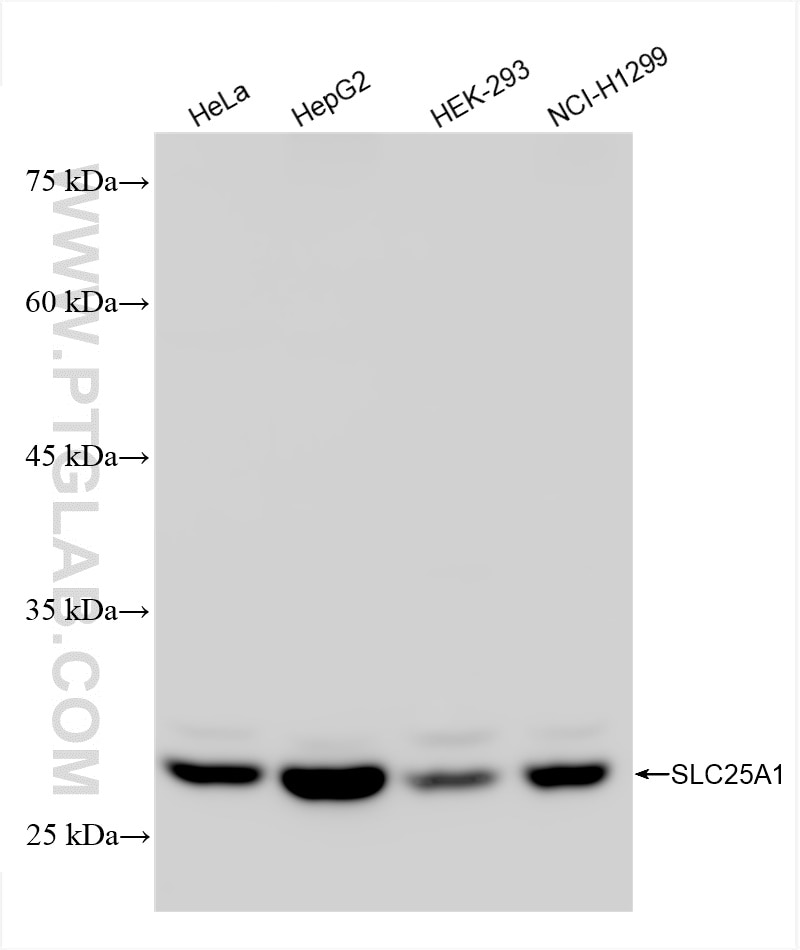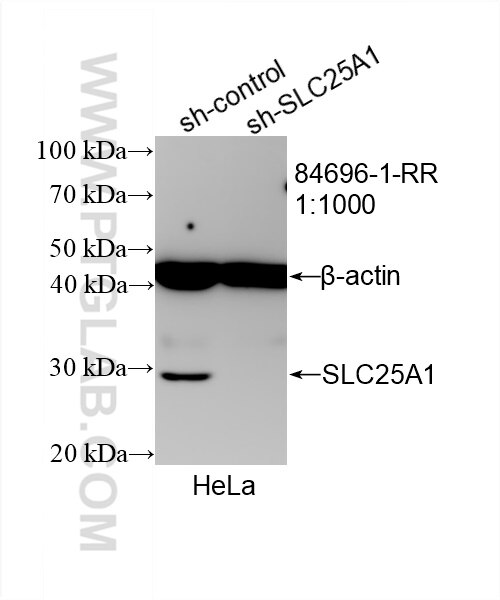Tested Applications
| Positive WB detected in | HeLa cells, HepG2 cells, HEK-293 cells, NCI-H1299 cells |
Recommended dilution
| Application | Dilution |
|---|---|
| Western Blot (WB) | WB : 1:2000-1:10000 |
| It is recommended that this reagent should be titrated in each testing system to obtain optimal results. | |
| Sample-dependent, Check data in validation data gallery. | |
Product Information
84696-1-RR targets SLC25A1 in WB, ELISA applications and shows reactivity with human samples.
| Tested Reactivity | human |
| Host / Isotype | Rabbit / IgG |
| Class | Recombinant |
| Type | Antibody |
| Immunogen | Peptide Predict reactive species |
| Full Name | solute carrier family 25 (mitochondrial carrier; citrate transporter), member 1 |
| Calculated Molecular Weight | 34 kDa |
| Observed Molecular Weight | 30 kDa |
| GenBank Accession Number | BC004980 |
| Gene Symbol | SLC25A1 |
| Gene ID (NCBI) | 6576 |
| RRID | AB_3672112 |
| Conjugate | Unconjugated |
| Form | Liquid |
| Purification Method | Protein A purfication |
| UNIPROT ID | P53007 |
| Storage Buffer | PBS with 0.02% sodium azide and 50% glycerol, pH 7.3. |
| Storage Conditions | Store at -20°C. Stable for one year after shipment. Aliquoting is unnecessary for -20oC storage. 20ul sizes contain 0.1% BSA. |
Background Information
SLC25A1, also known as CIC or CTP, is a mitochondrial citrate transporter that exports citrate from the mitochondria to the cytosol. SLC25A1 is highly expressed in several tumor types. Recently it has been identified as a novel transcriptional target of mutant p53 and a negative tumor prognostic marker. In addition, defects in SLC25A1 have been found as a cause of combined D-2- and L-2-hydroxyglutaric aciduria. (PMID: 24681808, 23561848)
Protocols
| Product Specific Protocols | |
|---|---|
| WB protocol for SLC25A1 antibody 84696-1-RR | Download protocol |
| Standard Protocols | |
|---|---|
| Click here to view our Standard Protocols |





